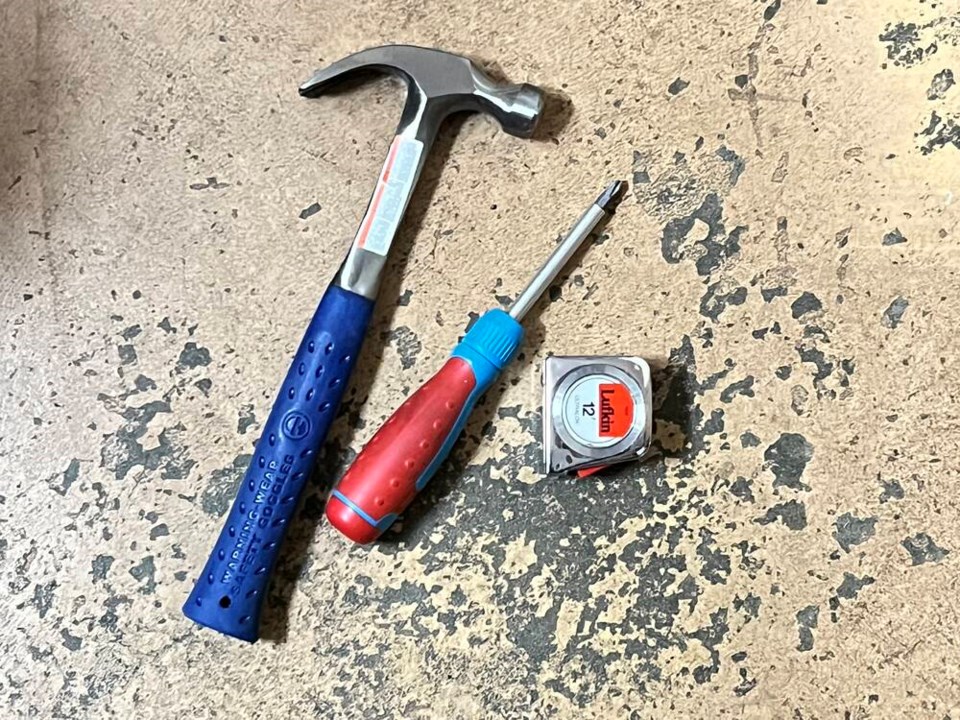Top Stories
Urgent Insights: Tool Use in Animals Raises New Questions

UPDATE: New observations highlight the intriguing ways animals, including humans, use tools to navigate their environments. This urgent study, led by Monique Keiran, has sparked discussions on the implications of tool use across species, revealing both benefits and dangers.
Just announced, the research emphasizes that humans are not alone in our ability to create and utilize tools. In a surprising turn, creatures as diverse as apes, dolphins, and even crows have been documented using tools for various purposes, showcasing nature’s ingenuity. This revelation is critical as it sheds light on how tool use influences survival and adaptation in the animal kingdom.
In a vivid example, a character dubbed Nature Boy was observed manipulating multiple tools in a matter of minutes—grabbing a stick to scratch his back, using clippers to trim shrubs, and even adjusting his earphones. This behavior underscores the complex relationship we share with tools, raising questions about our cognitive evolution and its implications.
The research, conducted by the Friday Harbor’s Center for Whale Research, took a closer look at southern resident killer whales. These whales were seen using pieces of kelp for grooming, demonstrating a sophisticated level of tool use that parallels human behavior. This development is significant, as it suggests advanced problem-solving abilities in non-human species.
Beyond just humans and whales, animals like octopuses and sea otters display remarkable tool use as well. An octopus in British Columbia was even filmed utilizing a camera, an unexpected twist that highlights the creativity of these creatures.
As we delve deeper into this research, it becomes evident that while tool use can enhance survival, it also introduces new challenges. The complexity of our tool-related behaviors has led to both improved living conditions and unprecedented threats, including environmental dangers and health risks.
This research is a call to action, urging us to reconsider our relationship with technology and tools. As we share our findings, the urgency of understanding these dynamics becomes clear. The implications are not just academic; they resonate with our daily lives and the future of our planet.
What happens next? Researchers will continue to observe these behaviors in various species, further exploring the impact of tool use on survival and society. As this story develops, stay tuned for more updates on how animals adapt and thrive with the tools at their disposal.
For those eager to engage with this topic, sharing this article can foster discussion about our connection with the animal kingdom and the broader implications of tool use in our environment.
-

 World3 months ago
World3 months agoScientists Unearth Ancient Antarctic Ice to Unlock Climate Secrets
-

 Entertainment3 months ago
Entertainment3 months agoTrump and McCormick to Announce $70 Billion Energy Investments
-

 Science3 months ago
Science3 months agoFour Astronauts Return to Earth After International Space Station Mission
-

 Lifestyle3 months ago
Lifestyle3 months agoTransLink Launches Food Truck Program to Boost Revenue in Vancouver
-

 Technology2 months ago
Technology2 months agoApple Notes Enhances Functionality with Markdown Support in macOS 26
-

 Top Stories1 week ago
Top Stories1 week agoUrgent Update: Fatal Crash on Highway 99 Claims Life of Pitt Meadows Man
-

 Sports3 months ago
Sports3 months agoSearch Underway for Missing Hunter Amid Hokkaido Bear Emergency
-

 Politics2 months ago
Politics2 months agoUkrainian Tennis Star Elina Svitolina Faces Death Threats Online
-

 Technology3 months ago
Technology3 months agoFrosthaven Launches Early Access on July 31, 2025
-

 Politics3 months ago
Politics3 months agoCarney Engages First Nations Leaders at Development Law Summit
-

 Entertainment3 months ago
Entertainment3 months agoCalgary Theatre Troupe Revives Magic at Winnipeg Fringe Festival
-

 Politics1 week ago
Politics1 week agoShutdown Reflects Democratic Struggles Amid Economic Concerns









